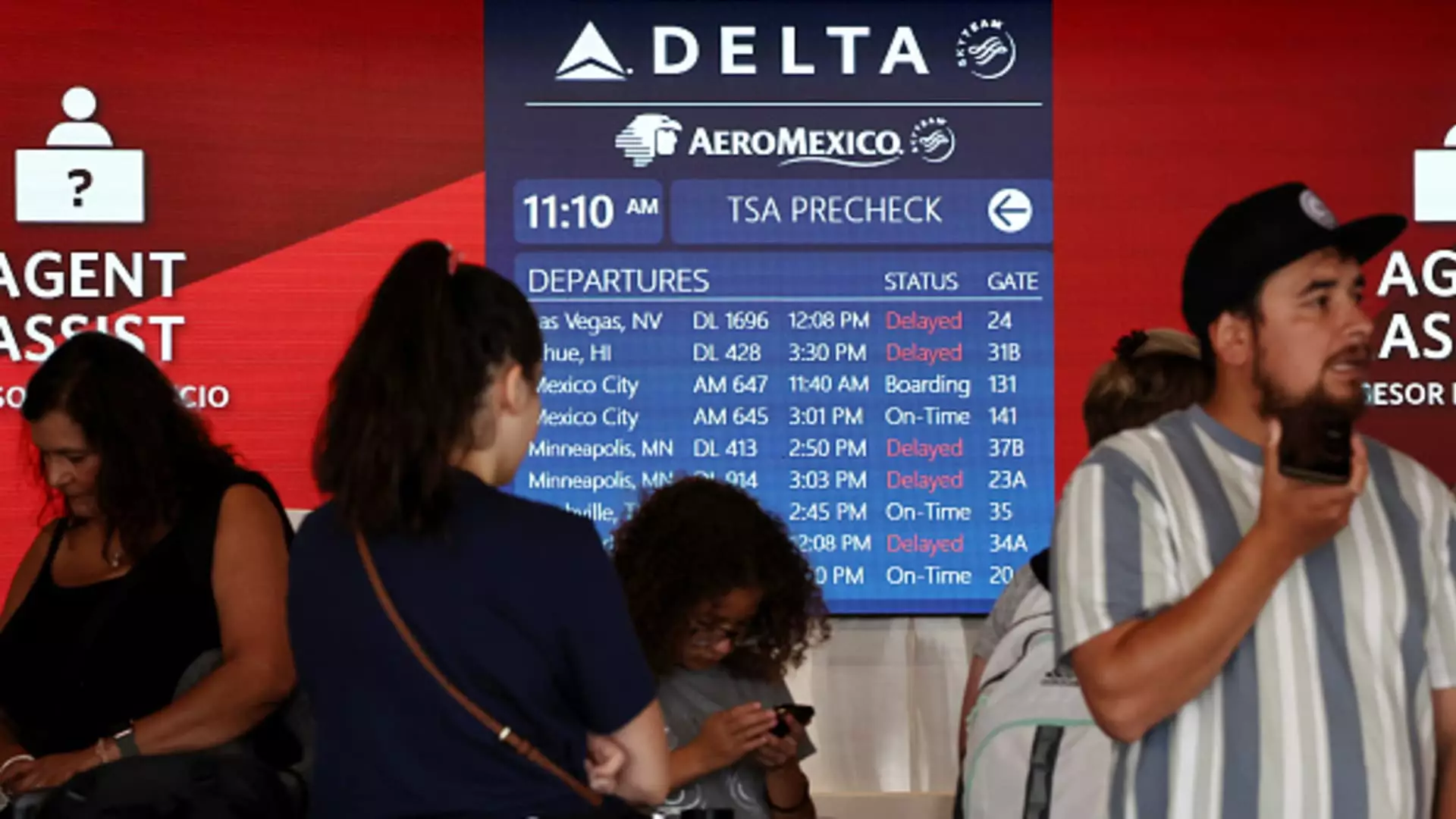The recent massive outage experienced by Delta Air Lines last month resulted in thousands of flight cancellations, causing CEO Ed Bastian to inform CNBC’s “Squawk Box” that the company incurred about $500 million in losses, including customer compensation. Despite the significant impact of the outage, Delta allegedly rejected onsite assistance from CrowdStrike, the cybersecurity company that was willing to lend a helping hand during the crisis.
Legal Claims and Litigation Threats
In response to Delta’s threats of pursuing legal claims to recover its losses, CrowdStrike’s lawyer, Michael Carlinsky, accused Delta of creating a misleading narrative. He claimed that Delta’s litigation threats contributed to the false perception that CrowdStrike was responsible for the airline’s IT decisions and response to the outage. Interestingly, Carlinsky mentioned that CrowdStrike’s CEO George Kurtz reached out to Bastian to offer onsite assistance, only to receive no response from Delta.
The aftermath of the outage saw Delta cancel over 5,000 flights within a week, surpassing its competitors in terms of disruptions. This led to CrowdStrike’s shares plummeting by more than 36%, reflecting the severity of the outage’s impact on the tech company’s reputation and financial standing. The outage’s ripple effect was felt across various industries, ranging from banking to healthcare to air travel, showcasing the widespread consequences of Delta’s IT failure.
Accountability and Responsibility
CrowdStrike’s lawyer emphasized the importance of accountability, urging Delta to take responsibility for its actions in a transparent and constructive manner. He highlighted the need for Delta to explain its decision-making process, IT infrastructure, business continuity plans, and past outage management to stakeholders and potentially a jury. Furthermore, CrowdStrike’s contractual liability is limited to single-digit millions, raising questions about Delta’s legal strategy and potential financial recovery.
While the legal battle between Delta and CrowdStrike unfolds, both parties express hopes for a cooperative resolution to address the fallout from the outage. Delta’s CEO emphasized the importance of thorough testing in critical operations to prevent similar incidents in the future. CrowdStrike, on the other hand, promised to release future software updates in stages to minimize the risk of system failures and disruptions.
The clash between Delta Air Lines and CrowdStrike serves as a cautionary tale of the potential consequences of IT failures in the modern business landscape. As companies increasingly rely on technology to drive their operations, the need for robust cybersecurity measures and crisis management strategies becomes paramount. The ongoing legal dispute underscores the challenges of assigning blame, seeking compensation, and restoring trust in the aftermath of a significant outage. The outcome of this conflict will undoubtedly shape the future of digital resilience and corporate accountability in the face of unforeseen challenges.


Leave a Reply